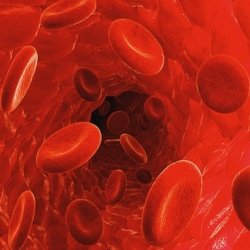
If there’s one thing that most (if not all) people do not look forward to, it’s probably getting old. And that’s pretty understandable considering aging brings all kinds of problems, many of which are health-related. There’s the concern of physical changes and for others things like isolation and loneliness.
This is the driving force behind countless numbers of research that attempt to ‘treat’ aging and aging-related conditions. One of the latest that came out involves rejuvenation of blood stem cells, specifically, hematopoietic stem cells (HSC) or the ones that generate blood cells.
While we are still young, HSCs produce a well-balanced number of red and white blood cells in accordance with our body’s needs. But as we age, the capacity of our HSCs deteriorate. In other words, as we get older, the number of blood cells that our HSCs can produce declines. And this is pretty bad news because this unbalanced production is precisely what leads to certain diseases. For instance, underproduction of white blood cells lead to lower immunity while its overproduction can lead to blood cancers like leukemia.
This is what the research team from Sweden’s University of Lunds attempted to work on, with mice as their test subjects. Knowing how blood cells became less functional with age, what they did was provide the mice with induced pluripotent stem (iPS) cells, stem cells that can produce any kind of cell not just blood cells, and the result was nothing short of amazing. The iPS cells seemed to rejuvenate the blood stem cells of the old mice, resetting and reprogramming the HSCs which in turn started to produce blood cells with the same capacity as HSCs in younger mice. Essentially, it’s as if the HSCs were brand new cells with the full capacity to generate blood cells.
The technique has only been tested on one type of test subject so far, and there’s always the possibility that it will not work the same way on others, especially on humans. But even if this discovery doesn’t progress or pan out as hoped, it still provides a step forward that could prove life-changing in the near future.
Aside from showing that iPS cells can reverse HSC aging, the research also suggests that blood cell production does not change as a result of gene mutation. Instead, the change happens due to epigenetics or changes in gene expressions. With this information, it may eventually become possible to develop more effective treatments against deadly diseases like leukemia and other blood disorders.
